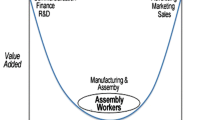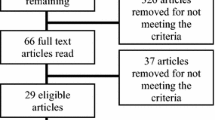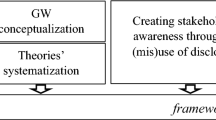Abstract
Recent scholarship has considered the implications of the rise of voluntary private standards in food and the role of private actors in a rapidly evolving, de-facto ‘mandatory’ sphere of governance. Standards are an important element of this globalising private sphere, but are an element that has been relatively peripheral in analyses of power in agri-food systems. Sociological thought has countered orthodox views of standards as simple tools of measurement, instead understanding their function as a governance mechanism that transforms many things, and people, during processes of standardisation. In a case study of the Australian retail supermarket duopoly and the proprietary standards required for market access this paper foregrounds retailers as standard owners and their role in third-party auditing and certification. Interview data from primary research into Australia’s food standards captures the multifaceted role supermarkets play as standard-owners, who are found to impinge on the independence of third-party certification while enforcing rigorous audit practices. We show how standard owners, in attempting to standardize the audit process, generate tensions within certification practices in a unique example of ritualism around audit. In examining standards to understand power in contemporary food governance, it is shown that retailers are drawn beyond standard-setting into certification and enforcement, that is characterized by a web of institutions and actors whose power to influence outcomes is uneven.
Similar content being viewed by others
Notes
Indeed, in a surprising display of transparency one supermarket chain actively provides online access to their many government submissions in their ‘Media Centre’.
Typically, these jurisdictions are state based, including New Zealand. Furthermore, New Zealand has additional standards which it also applies and enforces.
In Australia a child died from eating contaminated salami in what became known as the Garibaldi incident—named after the company that made the product. In Europe, there has been much publicity about BSE, or mad cow’s disease which was also later implicated in the US and Canadian supply chain. Similarly, numerous e-coli, campylobacter and salmonella outbreaks have been reported globally.
This research strategy was guided by Blaikie’s (2009) ‘abductive’ approach, a middle path between grounded, inductive qualitative approaches, and the practical necessity of drawing on others’ accounts to create one’s own.
References
Australian Competition and Consumer Commission (ACCC). 2008. Report of the ACCC inquiry into the competitiveness of retail prices for standard groceries. Canberra: Commonwealth of Australia.
Albersmeier, F., H. Schulze, G. Jahn, and A. Spiller. 2009. The reliability of third-party certification in the food chain: From checklists to risk-oriented auditing. Food Control 20(10): 927–935.
Avery, N., M. Drake, and T. Lang. 1994. Cracking the Codex: An analysis of who sets world food standards. London: National Food Alliance.
Bain, C., E. Ransom, and M. Worosz. 2011. Constructing credibility: Using technoscience to legitimate strategies in agri-food governance. Journal of Rural Social Sciences 25(3): 160–192.
Biénabe, E., D. Boselie, M.-H. Collion, T. Fox, P. Rondot, P. van der Kop, and B. Vorley. 2007. The internationalization of food retailing: Opportunities and threats to small-scale producers. In Regoverning markets: A place for small-scale producers in modern agri-food chains?, ed. B. Vorley, A. Fearne, and D. Ray, 3–14. Farnham: Gower Publishing Ltd.
Blaikie, N.W.H. 2009. Designing social research: The logic of anticipation. Cambridge: Polity.
Blair, W. 1998. Food: A growth industry. Report of the Food Regulation Review. Canberra: Food Regulation Review.
Blythman, J. 2004. Shopped: The shocking power of British supermarkets. London: Fourth Estate.
Braithwaite, J., T. Makkai, and V. Braithwaite. 2007. Regulating aged care: Ritualism and the new pyramid. Cheltenham: Edward Elgar.
Brunsson, N., and B. Jacobsson. 2000. A world of standards. Oxford: Oxford University Press.
Burch, D., and G. Lawrence (eds.). 2007. Supermarkets and agri-food supply chains: Transformations in the production and consumption of foods. Cheltenham: Edward Elgar.
Busch, L. 2000. The moral economy of grades and standards. Journal of Rural Studies 16(3): 273–283.
Busch, L. 2010. Standards, law and governance. Journal of Rural Social Sciences 25(3): 56–78.
Busch, L. 2011a. Food standards: The cacophony of governance. Journal of Experimental Botany 62(10): 3247–3250.
Busch, L. 2011b. The private governance of food: Equitable exchange or bizarre bazaar? Agriculture and Human Values 28(3): 345–352.
Busch, L., and C. Bain. 2004. New! Improved? The transformation of the global agri-food System. Rural Sociology 69(3): 321–346.
Carman, J. 2004. Is GM food safe to eat? In Recoding nature: Critical perspectives on genetic engineering, ed. R.A. Hindmarsh, and G. Lawrence, 82–92. Sydney: UNSW Press.
Clapp, J., and D. Fuchs. 2009. Corporate power in global agri-food governance. London: MIT Press.
CSR. 2011. Coles Supplier Requirements—Food: supplier standard—CSR-FV3, May 2011. http://www.supplierportal.coles.com.au/csp/wps/wcm/connect/colessupplier_en/csp/quality+-+coles+brands/supplier+audit+requirements/food/coles+supplier+requirements+csr-fv3. Accessed on 13 Nov 2011.
Deloitte. 2010. Emerging from the downturn: Global powers of retailing. London: Deloitte.
Dixon, J., L. Hattersley, and B. Isaacs. Forthcoming. Transgressing retail: Supermarkets, liminoid power and the metabolic rift. In Food transgressions: Making sense of contemporary politics, eds. Goodman M., and C. Sage. Aldershot: Ashgate.
Dixon, J. 2008. Operating upstream and downstream: How supermarkets exercise power in the food system. In A sociology of food and nutrition: The social appetite, ed. J. Germov, and L. Williams, 100–124. Melbourne: Oxford University Press.
Fagan, J. 2003. Cert ID: A successful example of an independent, third-party, private certification system. Paper presented at the Symposium on Product Differentiation and Market Segmentation in Grains and Oilseeds: Implications for Industry in Transition, 27–28 Jan 2003, Washington, DC.
Farina, E.M.M.Q., and T. Reardon. 2000. Agri-food grades and standards in the extended mercosur: Their role in the changing agri-food system. American Journal of Agricultural Economics 82(5): 1170–1176.
Food Standards Australia New Zealand (FSANZ). 2011. A short history of FSANZ. http://www.foodstandards.gov.au/scienceandeducation/aboutfsanz/historyoffsanz.cfm. Accessed on 26 Oct 2011.
Fuchs, D., A. Kalfagianni, and M. Arentsen. 2009. Retail power, private standards, and sustainability in the global food system. In Corporate power in global agri-food governance, ed. J. Clapp, and D. Fuchs, 29–59. London: MIT Press.
Fuchs, D., A. Kalfagianni, and T. Havinga. 2011. Actors in private food governance: The legitimacy of retail standards and multistakeholder initiatives with civil society participation. Agriculture and Human Values 28(3): 353–367.
Fulponi, L. 2006. Private voluntary standards in the food system: The perspective of major food retailers in OECD countries. Food Policy 31(1): 1–13.
Hall, D. 2010. Food with a visible face: Traceability and the public promotion of private governance in the Japanese food system. Geoforum 41(5): 826–835.
Hatanaka, M., and L. Busch. 2008. Third-party certification in the global agri-food system: An objective or socially mediated governance mechanism? Sociologia Ruralis 48(1): 73–91.
Havinga, T. 2006. Private regulation of food safety by supermarkets. Law and Policy 28(4): 515–533.
Henson, S., and J. Humphrey. 2008. Understanding the complexities of private standards in global agri-food chains. Brighton: Institute of Development Studies.
Henson, S., and J. Humphrey. 2009. The impacts of private food safety standards on the food chain and on public standard-setting processes. Joint FAO/WHO Food Standards Programme, Codex Alimentarius Commission, ALINORM 09/32/9D-Part II.
Henson, S., and J. Humphrey. 2010. Understanding the complexities of private standards in global agri-food chains as they impact developing countries. Journal of Development Studies 46(9): 1628–1646.
Higgins, V., and W. Larner. 2011. Calculating the social: Standards and the reconfiguration of governing. Basingstoke: Palgrave Macmillan Ltd.
Hobbs, J.E., A. Fearne, and J. Spriggs. 2002. Incentive structures for food safety and quality assurance: An international comparison. Food Control 13(2): 77–81.
Jaffee, S., and O. Masakure. 2005. Strategic use of private standards to enhance international competitiveness: Vegetable exports from Kenya and elsewhere. Food Policy 30(3): 316–333.
Kjærnes, U., M. Harvey, and A. Warde. 2007. Trust in food: A comparative and institutional analysis. Basingstoke: Palgrave Macmillan.
Konefal, J. 2010. Food, the environment, and democracy: A case study of the marine conservation movement’s shift from state-centered to market-based approaches. Journal of Rural Social Sciences 25(3): 226–252.
Konefal, J., C. Bain, M. Mascarenhas, and L. Busch. 2007. Supermarkets and supply chains in North America. In Supermarkets and agri-food supply chains: Transformations in the production and consumption of foods, ed. D. Burch, and G. Lawrence, 268–288. Cheltenham: Edward Elgar.
Konefal, J., and M. Hatanaka. 2010. The Michigan state university school of agri-food governance and technoscience: Democracy, justice, and sustainability in an age of scientism, marketism, and statism. Journal of Rural Social Sciences 25(3): 1–17.
Konefal, J., M. Mascarenhas, and M. Hatanaka. 2005. Governance in the global agro-food system: Backlighting the role of transnational supermarket chains. Agriculture and Human Values 22(3): 291–302.
Krislov, S. 1997. How nations choose product standards and standards change nations. Pittsburgh: University of Pittsburgh Press.
Loader, R., and J.E. Hobbs. 1999. Strategic responses to food safety legislation. Food Policy 24(6): 685–706.
Lockie, S., and V. Higgins. 2007. Roll-out neoliberalism and hybrid practices of regulation in Australian agri-environmental governance. Journal of Rural Studies 23(1): 1–11.
Loconto, A., and L. Busch. 2010. Standards, techno-economic networks, and playing fields: Performing the global market economy. Review of International Political Economy 17(3): 507–536.
Ponte, S. 2007. Bans, tests, and alchemy: Food safety regulation and the Uganda fish export industry. Agriculture and Human Values 24(2): 179–193.
Power, M. 1999. The audit society: Rituals of verification. Oxford: Oxford University Press.
Power, M. 2003. Auditing and the production of legitimacy. Accounting, Organizations and Society 28(4): 379–394.
Pritchard, B. 2005. Implementing and maintaining neoliberal agriculture in Australia part 1: Constructing neoliberalism as a vision for agricultural policy. International Journal of Sociology of Agriculture and Food 13(1): 1–12.
Reardon, T., and E. Farina. 2002. The rise of private food quality and safety standards: Illustrations from Brazil. The International Food and Agribusiness Management Review 4: 413–421.
Richards, C., G. Lawrence, and D. Burch. 2011. Supermarkets and agro-industrial foods: The strategic manufacturing of consumer trust. Food, Culture and Society: An International Journal of Multidisciplinary Research 14(1): 29–47.
Roberts, D., and L. Unnevehr. 2003. Resolving trade disputes arising from trends in food safety regulation: The role of the multilateral governance framework. In International trade and food safety: Economic theory and case studies, ed. J.G. Buzby, 28–47. Washington, DC: U.S. Department of Agriculture.
Robinson, N., and L. Vasek. 2009. Watchdog defends duopoly on food prices. The Australian. 10 November. http://www.theaustralian.com.au/news/nation/watchdog-defends-duopoly-on-food-prices/story-e6frg6nf-1225795926100. Accessed on 28 June 2011.
Sales, L. 2008. Eating in the dark: How Australia’s food regulator is failing us on genetically modified food. Sydney: Greenpeace.
Simms, A. 2007. Tescopoly: How one shop came out on top and why it matters?. London: Constable.
Sklair, L. 2002. The transnational capitalist class and global politics: Deconstructing the corporate-state connection. International Political Science Review 23(2): 159–174.
Stuart, D. 2010. Science, standards and power: New food safety governance in California. Journal of Rural Social Sciences 25(3): 111–140.
Suppan, S. 2006. Codex standards and consumer rights. Consumer Policy Review 16(1): 5–13.
Tanaka, K., and L. Busch. 2003. Standardization as a means for globalizing a commodity: The case of rapeseed in China. Rural Sociology 68(1): 25–45.
Tanner, B. 2000. Independent assessment by third-party certification bodies. Food Control 11(5): 415–417.
Timmermans, S., and S. Epstein. 2010. A world of standards but not a standard world: Toward a sociology of standards and standardization. Annual Review of Sociology 36(1): 69–89.
WQA. 2011. Woolworths quality assurance standard: Primary production—produce. http://www.wowlink.com.au/cmgt/wcm/connect/118b41804593d41bb9a2ff75ac8a5c51/WQA+Produce+Standard+Version+7+28Jan+2011.pdf?MOD=AJPERES. Accessed on 13 Nov 2011.
Acknowledgments
This study was funded by the Australian Research Council (Project Nos. DP 0773092 and DP 110102299). We would like to thank the anonymous reviewers for their constructive feedback and helpful comments on the early draft on this paper.
Author information
Authors and Affiliations
Corresponding author
Rights and permissions
About this article
Cite this article
Davey, S.S., Richards, C. Supermarkets and private standards: unintended consequences of the audit ritual. Agric Hum Values 30, 271–281 (2013). https://doi.org/10.1007/s10460-012-9414-6
Accepted:
Published:
Issue Date:
DOI: https://doi.org/10.1007/s10460-012-9414-6




